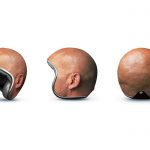Personal Trainers Require Extensive CPR Training and Knowledge
When you choose to pursue a career as a personal trainer, you have chosen to enter the field of exercise science. This is an exciting industry that is full of opportunity and involves improving both cardiovascular health and overall health. Weightlifting is an integral part of the exercise routine that personal trainers instruct. However, if an accident does occur during the training session, it is important that you are prepared when an emergency takes place. Quick action is always best and this requires proper CPR training.
 What is Exercise Tolerance?
What is Exercise Tolerance?
It is important to note that exercise tolerance is the ability of the different systems within the body to meet the demand that is taking place due to exertion. The systems that are working over time during a training session include the cardiac, pulmonary and vascular systems. If the body is not able to get enough oxygen to the muscles in a certain period of time, this can result in one of the systems failing. This leads to cardiac arrest, which can put the life of your training client at risk. When cardiac arrest occurs, the need for CPR is immediate. The best way to avoid cardiac arrest from happening is not pushing your client past their limit.
Get to Know Your Client’s Limits
The best way to avoid pushing your client too hard is to know their limitations. This means that you need to take a special interest in each client and learn what they are capable of from the start. Creating an exercise program that is within your client’s capabilities is possible if you know the medical background and exercise history of the people that you train.
As a trainer, there are multiple risk factors that you need to be on the lookout for. These risk factors include history of heart attack, past strokes and onset of COPD. All of these medical conditions can put clients at greater risk of cardia arrest.
Be Responsible and Obtain CPR Training
As a trainer, you always want to be prepared and put the health of your client first. The best way to be prepared for cardiac arrest is to have adequate CPR training. This will enable you to respond in a timely manner and could be the difference between life and death for your clients. Don’t take any chances, when it comes to the health of your clients.


